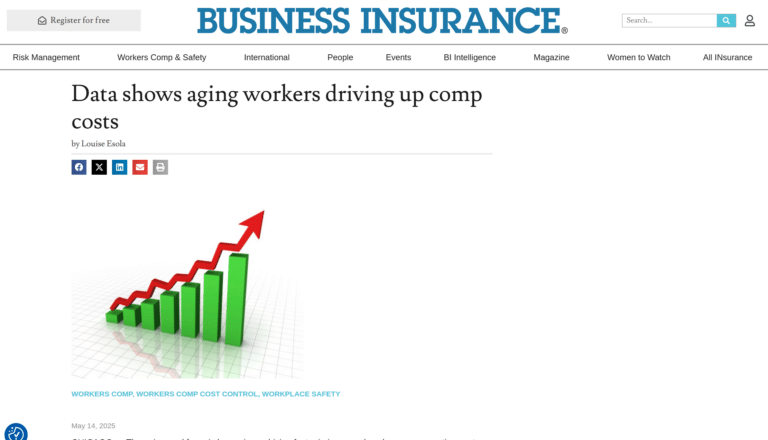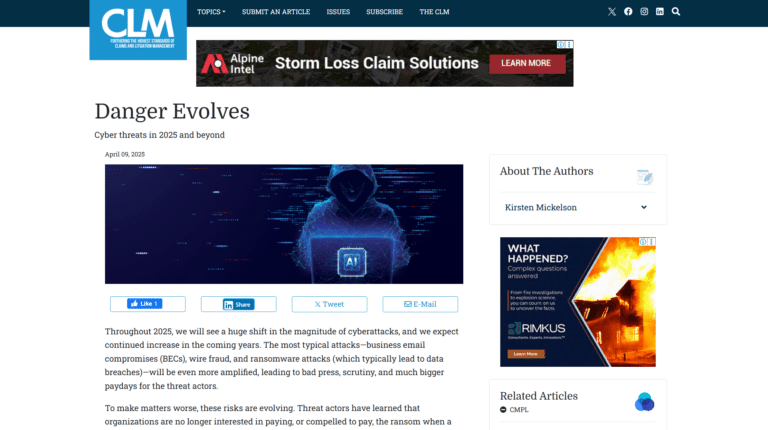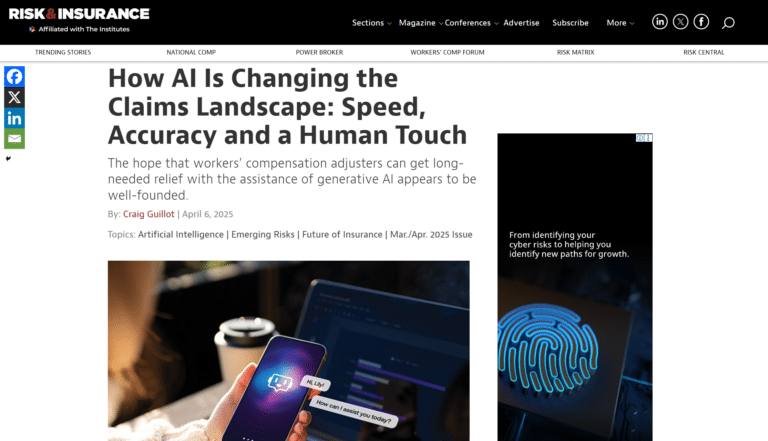Staying ahead of emerging trends in the workers’ compensation landscape is critical for developing strategies that benefit both patients and the industry. The pharmaceutical aspects of workers’ compensation are seeing transformative shifts, influenced by factors ranging from the normalization of mental health to the persistent challenges of opioid usage. Here, Gallagher Bassett’s (GB’s) Johnny Taylor, AVP — Ancillary Networks & Pharmacy, and Jennifer Cogbill, SVP — GBCARE Client Services, discuss these trends and shed light on the proactive measures being implemented to shape the pharmaceutical and managed care landscape in the coming year.
The conversation explores the impact of legislation on physician dispensing, the exploratory phase of addressing long COVID, and the vital role of clinical intervention programs and utilization management. Read on for insight into the challenges and opportunities that lie ahead in 2024.
Johnny Taylor (JT): How do you foresee the normalization of mental health impacting prescription trends in 2024?
Jennifer Cogbill (JC): In recent years, mental health awareness has seen a transformative shift in healthcare. As mental health becomes a more open topic, its direct impact on an injured worker’s recovery is becoming a stronger focus. The challenge now lies in how carriers will manage these claims and their subsequent influence on pharmacy utilization. This becomes even more critical if mental health workers’ compensation claims are deemed compensable. In response, carriers need robust strategies to effectively manage these claims and ensure appropriate access to medications for those in need.
Speaking of strategies, how are workers’ compensation teams adapting to the changing landscape of opioid utilization, considering the ongoing opioid crisis and the 2022 CDC guidelines?
JT: The landscape of opioid utilization has seen a decline, but signs indicate a potential flattening. The 2022 CDC guidelines provide recommendations for opioid prescribing, necessitating tighter controls and restrictions. As a result, workers’ compensation teams are proactively adjusting their strategies. This involves closely monitoring the impact of the guidelines, engaging with prescribing doctors, and incorporating peer reviews into prescribing patterns. While opioids may be warranted in certain situations, it’s essential to review cases to mitigate potential adverse consequences. New research, especially on how opioids interact with other medications, such as gabapentin, is also influencing prescription safety.
Physician dispensing has seen increasing challenges. How are changes in legislation impacting the cost and utilization of physician-dispensed medications, and how should insurance providers adapt?
JC: Physician dispensing, while convenient, often comes at a higher cost than over-the-counter alternatives. Legislative changes across states add complexity to guidelines, fee schedules, and regulations around physician-dispensing practices. Carriers are closely monitoring the impact of these changes on cost and utilization. The challenge lies in adapting strategies to navigate the evolving legislative landscape of physician-dispensing practices. Staying informed and agile is necessary for insurance providers to ensure cost-effective and patient-centric approaches.
With the rise of long COVID, how is the industry navigating its potential impact on pharmacy trends, and what steps are being taken in this exploratory phase?
JT: Long COVID’s impact is still under scrutiny, especially in the context of workers’ compensation. While datasets from organizations like the Workers Compensation Research Institute provide valuable insights, much remains unknown. At GB, we’re analyzing our datasets and collaborating with pharmacy partners to understand and evaluate this growing concern over time. This phase is exploratory, and the industry is keen on understanding the progression of long COVID claims and their specific impact on prescription medications. It requires a comprehensive approach to address potential implications for prescription trends in 2024, particularly in the realm of workers’ compensation.
JC: Mental health diagnoses are also on the rise. How do you anticipate these trends impacting workers’ compensation pharmaceuticals, especially if carriers start deeming these claims compensable?
JT: Prescriptions for anxiety medications and antidepressants represent about 10% of pharmacy spend, which has remained consistent year over year. If more carriers deem these claims compensable, it will be interesting to see how the market reacts; however, we are all still waiting to see how this evolves. GB is taking proactive measures, connecting with doctors, medical directors, and pharmacists to leverage data for actionable insights. The challenge lies in the shortage of behavioral health specialists and the highly coveted nature of those available. Integrating these specialists into a national workers’ compensation system presents a significant challenge but is essential for comprehensive and accessible mental health support.
JC: Considering inflation’s impact on workers’ compensation, how is the industry preparing for potential increases in prescription drug costs given supply chain issues and rising costs of goods?
JT: The effects of inflation on average wholesale price (AWP) appear to be lagging somewhat, which poses a concern. The industry has seen a 3–5% increase in the AWP year over year. However, this doesn’t render the industry immune to the economic challenges plaguing other sectors. With supply chain issues and the overall rise in the cost of goods, the industry anticipates a more pronounced increase in prescription drug costs over the next year. Evaluating how inflation influences drug pricing and reimbursement is crucial to ensuring continued affordable access to medications for patients.
Overall, rethinking drug dispensation is vital. Can you elaborate on the importance of clinical intervention programs and utilization management in ensuring appropriate prescriptions in the workers’ compensation space?
JC: Clinical intervention programs play a pivotal role in mitigating adverse consequences associated with drug dispensation. Even if prescribing patterns are medically warranted, workers’ compensation should prioritize the development of effective clinical intervention programs with partners. These programs provide a series of checks to ensure that prescriptions are not only warranted in the short term but also align with long-term patient well-being. While cost containment is crucial, utilization management should be at the forefront. The cost of a medication that should not have been dispensed, even with potential cost containment, may be less detrimental than having no oversight into how the drug is ultimately used.
Johnny, thank you for sharing your insights. To wrap up, how do you envision the industry’s proactive measures shaping the pharmaceutical landscape in 2024?
JT: Proactive measures are at the core of shaping a positive pharmaceutical landscape in 2024. From managing mental health challenges to addressing opioid complexities and adapting to inflation, the industry’s commitment to clinical intervention and utilization management should drive positive change. These measures ensure effective and efficient prescription medication use, ultimately improving patient outcomes. The collaborative efforts of healthcare professionals, payers, and patients will play a crucial role in navigating the evolving landscape of workers’ compensation pharmaceuticals.
If you’re ready to navigate the future of workers’ compensation managed care, reach out to our team to learn how our experts can support you in 2024.
Also, don’t miss Jennifer Cogbill’s discussion with Chris Hampshire, VP — Carrier Practice Sales, on the IN-the-Know CPCU Society podcast. They cover the role of medical management in the workers’ compensation sector and other key issues impacting the medical space in the episode, “Managed Care and Evidence-Based Medicine Support with Jen Cogbill.”







